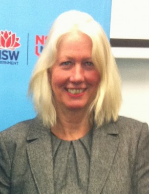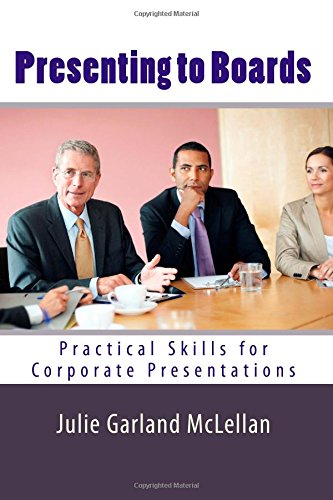|
|
|
|
|
|
|
|
|
Dear reader,
Welcome to the August 2017 edition of The Director’s Dilemma.
Contact me if you would like to arrange for a case study-based board workshop or conference presentation for your organisation.
To read this email in your browser, go to www.mclellan.com.au/newsletter.html and click on 'read the latest issue'.
Our case study this month considers the protocol for 'ex-gratia' payments to directors for work additional to their non-executive role. I hope you can identify the key governance issues and learn from this dilemma.
Renate chairs a small listed company. The company is undercapitalised and has a short runway; the board spend considerable time sourcing and securing investment, as well as guiding a novice CEO, and overseeing the governance and management of the company.
A recent investor requested a board seat and the request was granted. The new director had a strong network of high net worth individuals with entrepreneurial backgrounds. The board felt this could be an asset for the company as it progressed with R&D and, inevitably, more capital raising.
Renate asked the new director to accompany her on a trip to Singapore where the CEO was presenting at a conference and she was talking with some prospective PE and early stage VC investors. The trip would double as additional induction to help the director understand the technology and business model, and a chance to see how the new director performed in face to face meetings with other potential investors.
The dates and arrangements were all acceptable (economy airfares and a reasonable but not luxurious hotel). Renate was shocked when the director asked her what per diem rate he should invoice for his time on the trip. She had felt that this was part of the director's duty and included in the board's reasonable expectation. The director disagreed and said that a four-day overseas trip was clearly more than most directors would do and that he should be compensated for the 'opportunity cost' of his time.
Renate can see his point but is wary of setting a precedent that differs from the current practice of directors giving their time whenever they can if the company needs it.
What can, and what should, she do?
|
|
|
|
Alison's Answer
 Before the new director was appointed it should have been made clear in writing what his directors duties would be and that he earns his director's fees by fulfilling these duties. Whilst he was not appointed as the company's corporate advisor and fund raiser, his duties would also encompass assisting with capital raisings including introducing new investors. A normal rule of thumb is for a non-executive director to spend around a day a week on company business and this should have been discussed with him beforehand. Before the new director was appointed it should have been made clear in writing what his directors duties would be and that he earns his director's fees by fulfilling these duties. Whilst he was not appointed as the company's corporate advisor and fund raiser, his duties would also encompass assisting with capital raisings including introducing new investors. A normal rule of thumb is for a non-executive director to spend around a day a week on company business and this should have been discussed with him beforehand.
When Renate asked the new director to accompany her on a trip to Singapore she should have told him upfront what the arrangements would be. It is usual for a company to pay for out-of-pocket expenses for director travel on company business. Such reimbursable expenses include reasonable airfares, taxis, meals and accommodation. It is not usual for a company to pay any per diem rate to a non-executive director. Such an arrangement would only be considered if the director had already contributed far more than was usual over and above his director's duty.
Renate is right in thinking that she would set a dangerous precedent if she agreed to pay the per diem rate to the director. The current practice of directors giving their time whenever they can if the company needs it is appropriate for a small undercapitalised listed company and directors should be made aware of this expectation and be willing to do this before joining.
Renate should have made it clearer to the director, before appointment, what the time and commitment expectation would be. However, she should now explain to the director that he would only be reimbursed reasonable travel expenses and that no per diem rates would be paid.
Whilst the four days is a reasonably heavy commitment, this would not normally be asked of a director, however she should explain that this is a one-off circumstance and it would be mutually beneficial if he did attend. Whilst she would very much like him to be there in Singapore, if he chose not to attend, she should understand.
If after that explanation, he chose not to come on the trip, the board would need to consider his motivations for joining the board. If he pressed on for the per diem rate, the board would have serious concerns about his suitability as a director.
Alison Coutts is Chairman of NuSep Ltd, Director of DataDot Ltd, and Managing Director of Alison Coutts Consulting. She is based in Sydney, Australia.
|
|
|
|
Julie’s Answer
 Investors invest to gain returns. Directors govern for company success. Shareholder directors have aligned interest in corporate success; with heightened understanding of how investment timeframes, growth rates, capital generation or consumption, and profitability affect investors. At worst, if the company fails, they feel the pain that all shareholders suffer. Investors invest to gain returns. Directors govern for company success. Shareholder directors have aligned interest in corporate success; with heightened understanding of how investment timeframes, growth rates, capital generation or consumption, and profitability affect investors. At worst, if the company fails, they feel the pain that all shareholders suffer.
Shareholder directors also have conflicts of interest, especially when deciding on investing or returning funds. Good investor directors manage this conflict, respect the views of their colleagues, and work hard to build success. When an investor requests a board seat it is important to ensure that they understand the duties associated with the role; it is not just for greater and closer oversight of their investment.
New directors need to make an effort in the first few months to get familiar with the company and its environment. A trip to an industry conference and the chance to meet competitors as well as potential new investors is a great learning opportunity. Most good directors would want to attend.
Generally, directors expect to spend between 2 and 8 days per month on company business. This includes meeting stakeholders, learning the business, and thinking about strategy, competition, succession, and other issues.
Company constitutions often prohibit paying fees in addition to the normal director remuneration; as a listed company, Renate's board must disclose related party transactions (and be aware that other shareholders may not approve).
Renate should check her constitution then write a clear board policy on director payments which will apply to all directors. All directors should then comply with the new policy. In future, expectations must be set before the board seat is granted.
Renate needs to have a difficult conversation with this director about his level of effort. He is not a passive investor, seeing reports but not doing any work; he needs to fulfil his duty as a director or get off the board.
Julie Garland McLellan is a practising non-executive director and board consultant based in Sydney, Australia.
|
|
|
|
George’s Answer
 A robust process of recruitment setting out expectations from both the Board and the aspirant Director can ensure good outcomes when faced with Renate's circumstances. A robust process of recruitment setting out expectations from both the Board and the aspirant Director can ensure good outcomes when faced with Renate's circumstances.
In a new relationship, a Board and the aspirant Director are able to set and manage expectations to avoid misunderstandings and assumptions. Setting expectations can come from both stakeholders; the Chair can be clear about the financial position of the company, and share the culture of willingness by the Board to lean in and support the company where it is required; the aspirant Director can employ a term sheet which outlines her expectations for compensation, travel expenses and ancillaries, bringing clarity for both parties.
Part of managing expectations is putting a value on the time needed to be an effective Board. Whether a for profit or for purpose Board, quality Directors will come with experience and skills which are for the benefit of the organisation and are monetised in the market. Any expectation that there are voluntary aspects to the role of Director should be detailed in the early stages of recruitment.
An element which is apparent in this discussion but not often considered is that of the culture of the Board. The culture is expressed in the actions of the current Board members and in this case reflects the early stage or small size of the company. The aspirant Director is an investor in the company and should be aware of the financial position and the culture apparent on this Board.
When considering any Director opportunity be clear with your expectations, take into account the culture of the organisation, the general level of governance and the connectivity of the current Board members as part of a thorough due diligence process.
George Garrop is Executive Director of The Director Institute. He is based in Sydney, Australia.
|
|
|
|
|
Book review - Presenting to Boards by Julie Garland-McLellan.
Reviewed by James McRitchie, publisher of CorpGov.net
Presenting to boards is just like presenting to any other group, right?
Wrong.
Most boards suffer from attention deficit disorder. Many of the members of most boards that I have encountered won't sit through a presentation of more than a few minutes without disruption. You'll need to focus like a laser on your main points; you must expect to get interrupted and be able to go in whatever direction feedback warrants. Your ability to do so is important both to the board (you wouldn't be on the agenda if it wasn't important) and to your career (don't miss your opportunity to raise your level of importance to the firm).
For those who have never made board presentations, the author provides a very basic primer that will help you to get to know your audience. For those with more experience, McLellan provides organizing principles, both generally around several standard presentation types, as well as quick tips and "tales from the trenches."
Most readers will pick up several pointers in a few minutes. Like your own ideal presentation to the board, the author doesn't waste your time but covers the essential highlights.
Available at Amazon.com in paperback and Kindle editions.
|
 
|
What's New - In July
 I had the pleasure of presenting a keynote at the Better Boards Conference in Brisbane on 30 July. I opted to work through a case study (no surprise there for people who know me) and really enjoyed the audience's participation in addressing the issues. It was great to share the stage with governance luminaries such as Steve Bowman, Andrew Donovan and Gavin Nicholson. I had the pleasure of presenting a keynote at the Better Boards Conference in Brisbane on 30 July. I opted to work through a case study (no surprise there for people who know me) and really enjoyed the audience's participation in addressing the issues. It was great to share the stage with governance luminaries such as Steve Bowman, Andrew Donovan and Gavin Nicholson.
It was also lovely to meet some long term Directors Dilemma readers in person (hello Marion; I told you you would be featured). I will be visiting New Zealand in September and look forward to meeting my readers there when I present a workshop on Presenting to Boards.
The Cyber in Business Conference in Sydney was a valuable opportunity to learn some new things and to share some knowledge during the session on "Presenting Cyber Risk to the Board".
There was an interesting lunch focused on use of media exposure for building director profiles at the Director Institute.
I ran the 'Adding Value as a Director' course for Konnect Learning in Sydney and really enjoyed meeting the participants as well as being able to help them with the practical issues they face in their day jobs whilst stepping up to directorship.
I enjoyed two wonderful days in Central Queensland running my 'Writing Board and Senior Management Reports' course at CQUniversity. The weather in Rockhampton is spectacular at this time of year. I also ran some 'Presenting to the Board' training for senior executives at a major not-for-profit in Sydney.
Add to that the induction and steep learning curve of a new board (Suburban Land Agency in Canberra), and the demands of my other boards to get a full and fulfilling month of activities.
I would love to work with you so please call me if you need any training for your board or executives team, need a conference speaker or workshop facilitator, or wish to undertake a board review that will drive great performance. It is always a pleasure to work with the community of Director's Dilemma readers!
Inspirational quote for July - This month my favourite quote is:
“Judge a man by his questions rather than by his answers.”
~ Voltaire ~
Directors live or die by their skill at questions.
Let's meet - I love the opportunity to meet readers (and anyone who is interested in governance) so it would be great to see you at one of my upcoming events that are open to the public:
-
Presenting to Boards workshop, New Zealand, 20 September. Contact Julie for more details.
-
Taiwan Corporate Governance Association "Corporate Governance Summit XIII: Creating Corporate Value through Enhancing Functions of Board" in Taipei on 25 October followed by a masterclass workshop on 26 October.
If you would like me to speak for or train your board, staff, audience and/or group please contact me julie@mclellan.com.au.
A note on names - A few readers have asked me where I find the names for the protagonists in each case study. I can only say that I 'borrow' them from people I meet or things that I read. Renate is an old Germanic and Scandinavian name which derives from the Latin for 'born again'. Our protagonist will have to rethink her governance models and relationships as she gets to grips with the newly composed board of her company; not quite a rebirth but fairly close to it when directors have significant differences of opinion about how they should act..
This newsletter - If you have any ideas for improving the newsletter please let me know. If you are reading a forwarded copy please visit my website and sign up for your own subscription.
Suggestions for dilemmas - Thank you to all the readers who have suggested dilemmas. I will answer them all eventually. I could not write this newsletter without your help and without the generous help of all the experts who respond each month to the case studies.
Be a contributor - if you would like to attempt a response to the dilemmas for publication you will be most welcome. Simply reply to this email and let me know.
Farewell until the next issue (due 1 September 2017). I look forward to greeting you again then. In the interim I hope you will enjoy health, happiness and hard work.
Enjoy governing your corporations; we are privileged to do what we do!
Best regards,
Julie
|
|
|
|
Disclaimer
The opinions expressed above are general in nature and are designed to help you to develop your judgement as a director. They are not a definitive legal ruling. Names and some circumstances in the case study have been changed to ensure anonymity. Contributors to this newsletter comment in the context of their own jurisdiction; readers should check their local laws and regulations as they may be very different.
|
|
|
|
|
|
|
|
|
|
|
|
|

 Before the new director was appointed it should have been made clear in writing what his directors duties would be and that he earns his director's fees by fulfilling these duties. Whilst he was not appointed as the company's corporate advisor and fund raiser, his duties would also encompass assisting with capital raisings including introducing new investors. A normal rule of thumb is for a non-executive director to spend around a day a week on company business and this should have been discussed with him beforehand.
Before the new director was appointed it should have been made clear in writing what his directors duties would be and that he earns his director's fees by fulfilling these duties. Whilst he was not appointed as the company's corporate advisor and fund raiser, his duties would also encompass assisting with capital raisings including introducing new investors. A normal rule of thumb is for a non-executive director to spend around a day a week on company business and this should have been discussed with him beforehand. Investors invest to gain returns. Directors govern for company success. Shareholder directors have aligned interest in corporate success; with heightened understanding of how investment timeframes, growth rates, capital generation or consumption, and profitability affect investors. At worst, if the company fails, they feel the pain that all shareholders suffer.
Investors invest to gain returns. Directors govern for company success. Shareholder directors have aligned interest in corporate success; with heightened understanding of how investment timeframes, growth rates, capital generation or consumption, and profitability affect investors. At worst, if the company fails, they feel the pain that all shareholders suffer. A robust process of recruitment setting out expectations from both the Board and the aspirant Director can ensure good outcomes when faced with Renate's circumstances.
A robust process of recruitment setting out expectations from both the Board and the aspirant Director can ensure good outcomes when faced with Renate's circumstances.
 I had the pleasure of presenting a keynote at the Better Boards Conference in Brisbane on 30 July. I opted to work through a case study (no surprise there for people who know me) and really enjoyed the audience's participation in addressing the issues. It was great to share the stage with governance luminaries such as Steve Bowman, Andrew Donovan and Gavin Nicholson.
I had the pleasure of presenting a keynote at the Better Boards Conference in Brisbane on 30 July. I opted to work through a case study (no surprise there for people who know me) and really enjoyed the audience's participation in addressing the issues. It was great to share the stage with governance luminaries such as Steve Bowman, Andrew Donovan and Gavin Nicholson.
